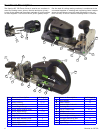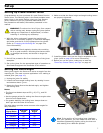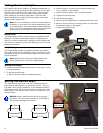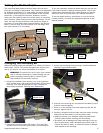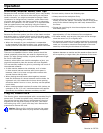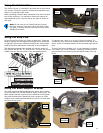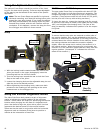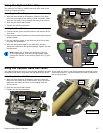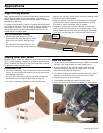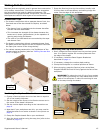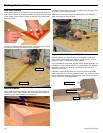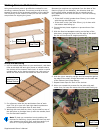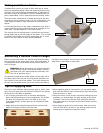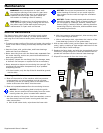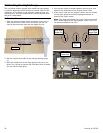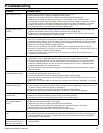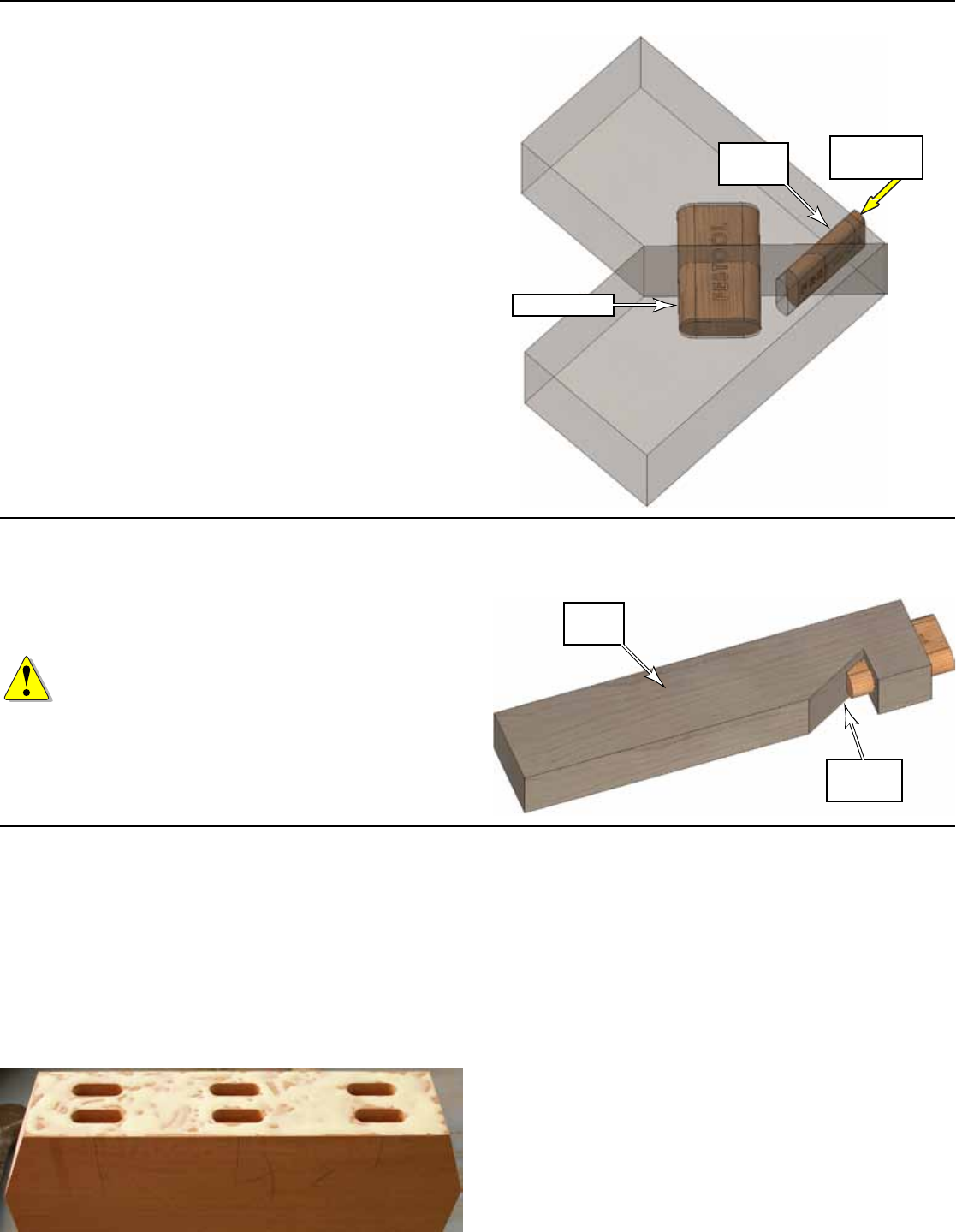
18 Domino XL DF700
Making Lock Tenon Joints
A locked tenon joint is any type of joint with two or more
tenons at opposing angles. Once the opposing tenon(s) are
inserted, the joint cannot be disassembled. At least one of
the tenons must be exposed so it can be inserted after the
joint is assembled. This is referred to as the Locking Tenon.
There are many variations of a locked tenon joint, but the
simplest involve a mitered corner in a box or at frame. The
miter angle provides an easy reference for the two tenon
angles.
In the example shown to the right, a standard miter joint is
constructed using a large Domino tenon for strength in the
main joint. The locking tenon is a smaller tenon.
The mortise for the locking tenon is milled with the joiner’s
plunge depth set to the full length of the tenon. This mortise
is typically milled after the joint is assembled, but it is pos-
sible to mill the mortise in each piece separately.
Locking
Tenon
Main Tenon
Insert After
Assembly
Shortening a Domino Tenon’s Length
There may be times when you need a large Domino tenon,
but the length of the tenon does not t your application. It
is important to rmly and safely hold the tenon while you
cut it to length.
WARNING! Never attempt to cut a Domino tenon’s
length without using a mechanical holder. Holding
the tenon with your hand poses an extremely seri-
ous risk of personal injury.
To make the simple tenon holder shown to the right, mill a
full-depth tenon slot into the end of a board, and then cut
out a notch in the side of the holder. This notch allows you
to push the shortened tenon out of the mortise slot after it
has been cut to length. Cut the tenon to the desired length
with either a hand saw or miter saw.
Tenon
Holder
Removal
Slot
Tips for Applying Glue
There are many different ways to apply glue to joints; how-
ever, how you apply glue can have an impact on the quality
of the joint or the ease of assembly.
► For a longer glue open-time on complex assemblies,
apply the glue generously to the workpieces. The thicker
the glue, the longer the time it will take to skin over
(see image below). Excess glue can be cleaned off after
completion.
► Apply glue to the workpiece face and the mortise slots
before inserting the tenons into the slots.
► When applying glue for the tenons, you can either apply
glue into the mortise slots, spread a thin layer across the
Domino tenons, or both.
► When the tenon is the primary structure holding the joint
together, you should apply the glue at least to the tenon
(or both). The Domino tenons have small glue pockets
and ridges that will hold glue as the tenon slides into the
mortise slot.
► When applying glue to the mortise slot, take care not to
use too much glue, as there is not enough space for the
excess glue to squeeze out past the tenon.



